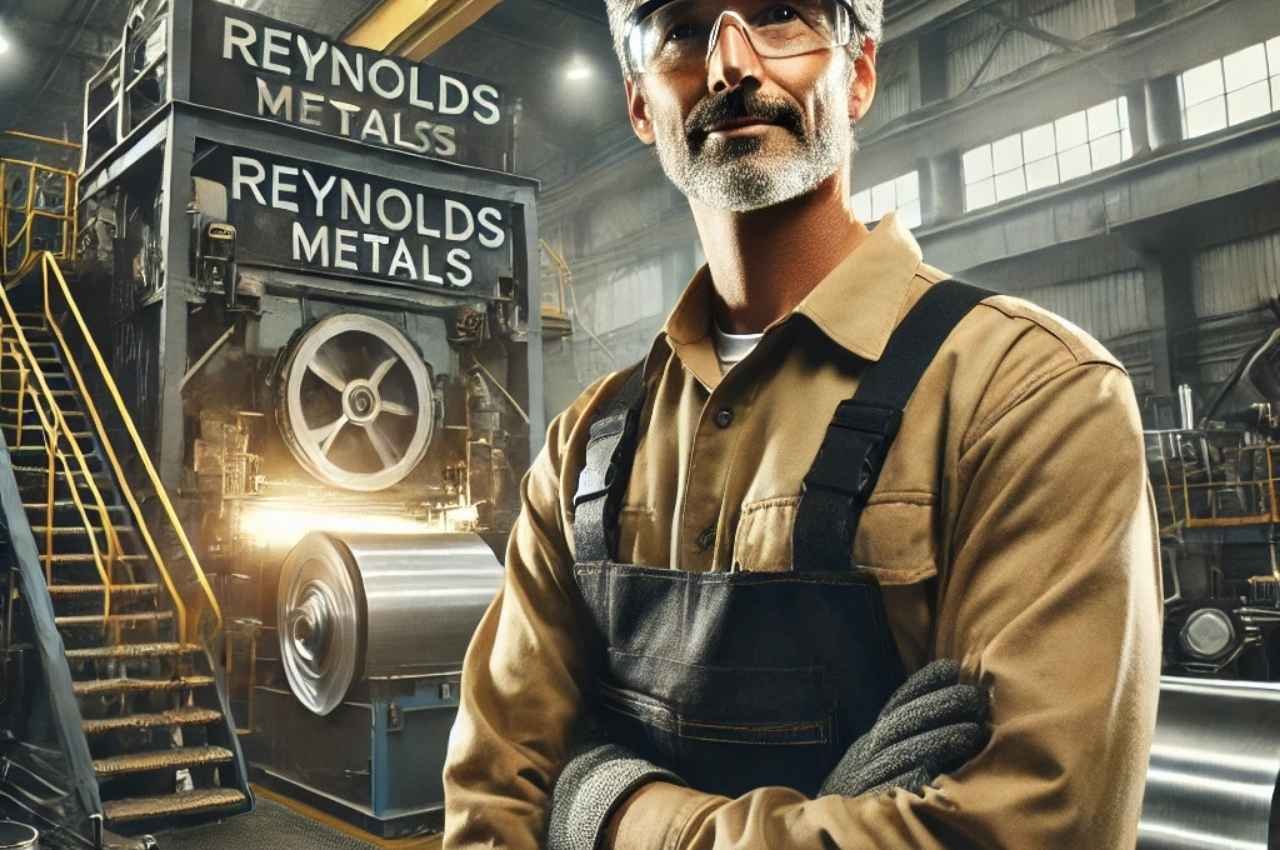Introduction
In metals manufacturing and processing, a select few individuals have left indelible marks on the industry, guiding their companies through periods of growth, innovation, and adaptation. One such figure is Ken Weiss, a notable leader associated with Reynolds Metals, a company that became a leading aluminum producer and innovator in the United States. Known for his strategic vision and operational insight, Ken Weiss played a pivotal role in shaping the company’s growth and success, leaving a legacy that still influences the industry today.
This article explores Ken Weiss’s contributions to Reynolds Metals, the impact of his work on the industry, and how his leadership style set a standard in corporate management and operational efficiency.
Overview of Reynolds Metals
Founded in 1919, Reynolds Metals began as an aluminum foil supplier and quickly grew into one of the largest aluminum producers in the United States. The company was responsible for many innovations, including developing aluminum foil for household use and numerous industrial applications. Over the decades, Reynolds Metals expanded its offerings to include aluminum products, from foil to packaging and construction materials.
Reynolds Metals operates through multiple divisions, including packaging, consumer products, and industrial aluminum. As the company grew, it faced challenges adapting to market changes, technological advancements, and the competitive landscape. This is where leaders like Ken Weiss proved instrumental in steering the company toward innovation and long-term success.
Ken Weiss’s Role at Reynolds Metals
Ken Weiss held several leadership positions at Reynolds Metals, making strategic decisions to help the company remain competitive and innovative. His contributions to Reynolds Metals can be analyzed through various lenses:
1. Strategic Innovation
One of Ken Weiss’s primary contributions to Reynolds Metals was his emphasis on innovation. He recognized early on that for Reynolds to stay competitive, it had to improve its products and processes continuously. This focus led to advancements in the company’s aluminum processing techniques and the development of new products.
Weiss encouraged a culture of innovation within Reynolds, where employees at all levels were motivated to bring new ideas. This fostered an environment where technological advancements were welcomed, and Reynolds could adapt to changes in consumer demands and industry trends. Weiss’s approach to innovation allowed Reynolds to remain a leader in aluminum processing and helped the company maintain a competitive edge in the market.
2. Expansion of Product Lines
Under Ken Weiss’s leadership, Reynolds Metals diversified its product offerings, expanding into new markets and applications. Recognizing that aluminum had potential beyond packaging and consumer goods, Weiss pushed for developing aluminum products in the construction, aerospace, and automotive industries. This diversification allowed Reynolds to mitigate risks associated with market volatility in any one segment and expanded the company’s revenue streams.
By expanding into these industries, Weiss positioned Reynolds Metals as a versatile supplier of aluminum products, catering to a broader customer base and reinforcing its reputation as a leading player in the aluminum sector.
3. Operational Efficiency and Cost Management
Weiss was known for his keen sense of operational efficiency. At Reynolds Metals, he implemented several cost-cutting measures and process improvements that helped the company increase its profitability. By optimizing production processes and investing in technology, Weiss reduced waste and improved the quality of the company’s aluminum products. These efforts offered Reynolds competitive pricing, attracting more clients and expanding its market share.
Weiss’s focus on Cost management helped Reynolds withstand economic downturns and market pressures. By maintaining a lean operation, the company could continue to invest in research and development, ensuring long-term growth and stability.
4. Focus on Sustainability
Ken Weiss was a forward-thinking leader who recognized the importance of environmental sustainability before it became a central focus for many companies. He promoted recycling within Reynolds Metals, championing initiatives to reclaim and reuse aluminum products. This approach reduced waste and aligned with growing consumer preferences for environmentally responsible products.
Under Weiss’s guidance, Reynolds Metals became an early adopter of sustainable practices in the aluminum industry, setting a precedent for other companies. This commitment to sustainability enhanced the company’s brand reputation and appeal to environmentally conscious customers, helping Reynolds stand out in a competitive market.
5. Leadership and Corporate Culture
A commitment to collaboration, integrity, and employee development characterized Weiss’s leadership style. He believed the company needed a cohesive and motivated workforce for Reynolds Metals to succeed. Weiss prioritized employee training and professional growth, offering opportunities for skill development and leadership within the company.
By fostering a supportive corporate culture, Weiss created a work environment where employees were encouraged to innovate and take ownership of their work. His leadership style promoted employee loyalty and dedication, contributing to Reynolds’s success and stability.
The Impact of Ken Weiss’s Contributions
Ken Weiss’s contributions to Reynolds Metals had a lasting impact on the company and the aluminum industry. His emphasis on innovation, sustainability, and operational efficiency positioned Reynolds as a leader in the industry, influencing the practices of other companies. Here are some key areas where his impact can be observed:
- Enhanced Market Position: Weiss’s strategic decisions allowed Reynolds Metals to expand into new markets and establish itself as a trusted supplier in diverse industries, including aerospace and automotive.
- Increased Sustainability: By promoting recycling and sustainable practices, Weiss set a standard for environmental responsibility within the industry, encouraging other companies to adopt similar practices.
- Employee Empowerment: Weiss’s focus on corporate culture and employee development fostered a motivated workforce contributing to the company’s success and reputation as an employer of choice.
- Innovation in Aluminum Processing: Through his commitment to innovation, Weiss drove advancements in aluminum processing that improved product quality and expanded applications, making Reynolds Metals a versatile player in the industry.
Challenges Faced and Overcome
Ken Weiss faced several challenges during his tenure at Reynolds Metals. The aluminum industry is highly competitive, and fluctuations in raw material prices and market demand pose risks to the company. Weiss also had to navigate economic downturns, which required careful financial management and strategic decision-making.
Despite these challenges, Weiss’s Cost management and innovation approach helped Reynolds Metals weather economic pressures and maintain a strong market position. His ability to balance short-term challenges with long-term goals contributed to the company’s resilience and growth.
Conclusion
Ken Weiss’s legacy at Reynolds Metals is a testament to the power of visionary leadership. Through his focus on innovation, operational efficiency, sustainability, and corporate culture, he transformed Reynolds Metals into a leading aluminum producer with a diverse product portfolio and a reputation for excellence. Weiss’s contributions to Reynolds Metals continue to influence the industry today, setting sustainability and operational efficiency standards.
As the aluminum industry evolves, the principles Weiss championed—innovation, sustainability, and employee empowerment—remain essential for success. His legacy at Reynolds Metals serves as an example for future leaders, demonstrating that commitment to quality, integrity, and environmental responsibility can lead to long-term growth and industry leadership.
Frequently Asked Questions (FAQ)
1. Who is Ken Weiss?
- Ken Weiss is a former leader at Reynolds Metals, known for his contributions to the company’s growth and success. His focus on innovation, operational efficiency, and sustainability made a lasting impact on Reynolds Metals and the aluminum industry.
2. What were Ken Weiss’s main contributions to Reynolds Metals?
- Weiss’s main contributions included promoting innovation, expanding product lines into diverse industries, improving operational efficiency, championing sustainability, and fostering a positive corporate culture.
3. How did Ken Weiss impact Reynolds Metals’ approach to sustainability?
- Weiss was an early advocate for recycling and sustainable practices within Reynolds Metals. He promoted initiatives to reclaim and reuse aluminum, reduce waste, and position Reynolds as a leader in environmental responsibility within the industry.
4. What are Reynolds Metals known for?
- Reynolds Metals is known for being a leading producer of aluminum products. The company is recognized for its innovations in aluminum foil and packaging and its contributions to the automotive, aerospace, and construction industries.
5. How did Ken Weiss influence the corporate culture at Reynolds Metals?
- Weiss emphasized collaboration, integrity, and employee development, fostering a positive corporate culture. His leadership style empowered employees to innovate and take ownership of their work, contributing to Reynolds Metals’ success and stability.
6. What challenges did Ken Weiss face at Reynolds Metals?
- Weiss faced challenges such as market competition, fluctuations in raw material prices, and economic downturns. However, his focus on Cost management and strategic innovation successfully helped the company navigate these challenges.
7. Why is Ken Weiss’s legacy significant in the aluminum industry?
- Ken Weiss’s legacy is significant because he set a standard for operational efficiency, sustainability, and corporate culture in the aluminum industry. His contributions continue to influence best practices and serve as an example for future leaders in the industry.

Arrow Hayes is a writer and the mind behind TechReverbs.com, dedicated to simplifying technology for everyday users. With expertise in emerging trends and practical insights, Arrow delivers concise, valuable content to keep readers informed in the fast-paced digital world.



